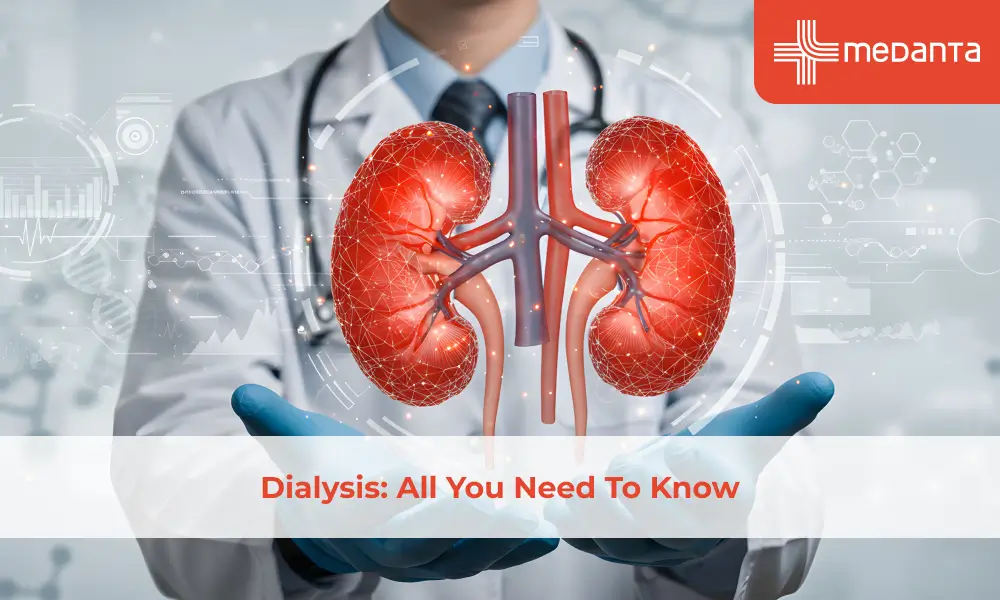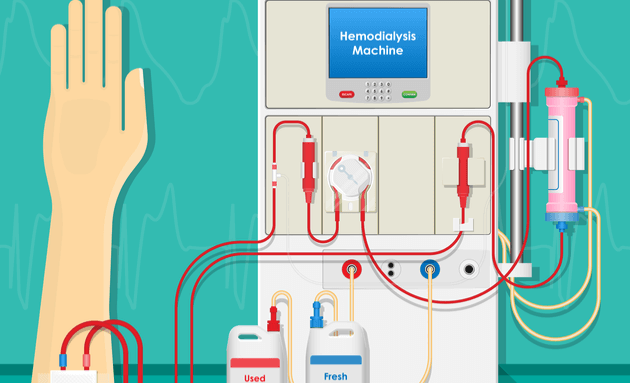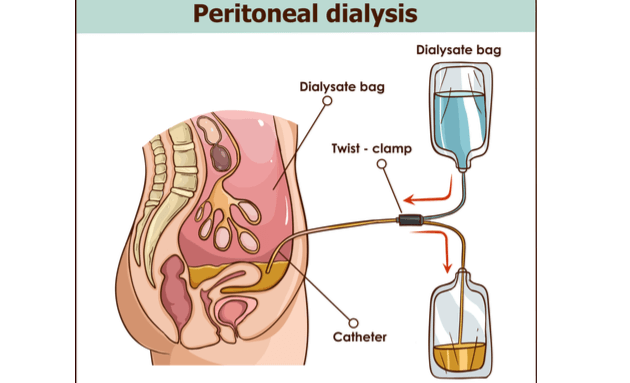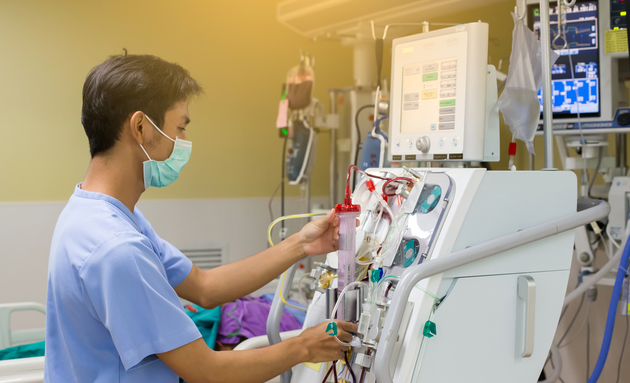Dialysis: All You Need To Know

Your kidneys are excretory organs that play a critical role in the effective removal of waste products and the regulation of fluids in our bodies. Any damage levelled to these organs due to ailments like Chronic Kidney Damage (CKD) can upset the delicate balance of key bodily chemicals like Potassium and Sodium as well as have dire repercussions on your blood pressure and hormone levels.
People who face a complete loss of kidney function are usually asked to undergo a procedure called Dialysis. Read on to learn more about the inner workings, risks and benefits of this life-saving procedure.
What is Dialysis?
Dialysis, simply put, is a procedure that seeks to mechanically carry out the functions that were previously performed by your Kidneys. The procedure uses a filtration device to filter out all the waste present in your blood as well as keep your fluid and electrolyte levels in check.
Here are three major dialysis techniques your physician could prescribe based on your case factors.
-
Hemodialysis

The most commonly prescribed procedure, this technique requires the use of an artificial kidney machine or Hemodialyzer to carry out your excretory functions. The procedure consists of running all your blood through an external machine which will clean your blood over a period of a few hours. Hemodialysis is usually carried out in a hospital but can also be done at home in severe cases that require long-term dialysis. -
Peritoneal Dialysis

Peritoneal dialysis is a dialysis technique that requires the surgical implantation of a peritoneal dialysis catheter (PD Catheter) to filter your blood through the peritoneum membrane in your abdomen. The process requires a fluid called Dialysate, to be pumped into your Peritoneum (to absorb waste from your blood) and drained out (via your abdomen) into a drainage bag. This exercise can require a few hours to complete and will need to be conducted 4-6 times in a single day. -
Continuous Renal Replacement Therapy (CRRT)

Also known as Hemofiltration, this procedure is usually prescribed for critically ill people who are admitted to the intensive care units of a hospital due to acute kidney dysfunction. The procedure requires waste-ridden blood to continuously be passed through a semipermeable filtration membrane for the eradication of waste products. The machine then adds a necessary replacement fluid and re-circulates the blood into the patient's body. This is a continuous process that can go on for 12 to 24 hours.
When Is Dialysis Recommended?
While Dialysis is typically recommended if you suffer from conditions like Chronic Kidney Disease and is routinely conducted in hospitals all around the world, it is important to be mindful that you can run a few side effects like
- Low Blood Pressure or Hypotension
- Anaemia
- Stomach Cramps
- Backaches
- Fever
- Insomnia
- Weight Gain
And finally, It is important to be aware that while Dialysis is usually carried out till you regain kidney function, it can at times become a lifelong exercise if you suffer from chronic kidney damage (CKD).
Consult your doctor immediately if you notice telltale signs of a weak kidney like urination difficulties, persistent nausea, breathing difficulties or Oedema (Swelling) in your extremities (hand or foot) to prevent lasting damage to your kidneys.






